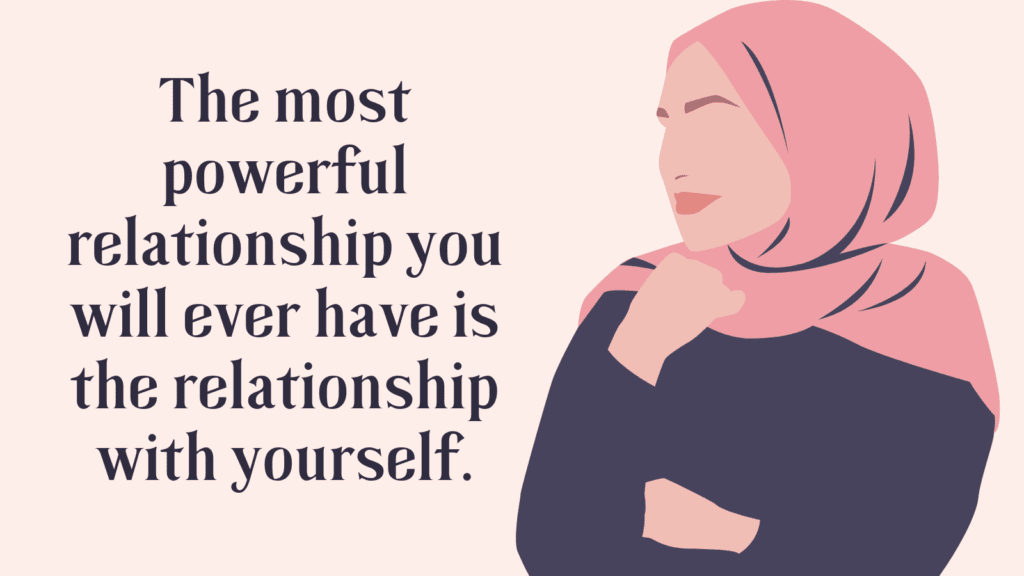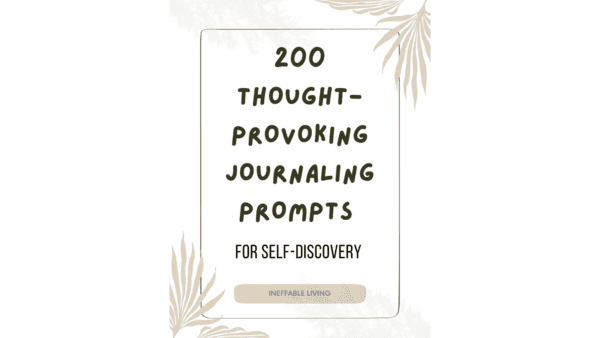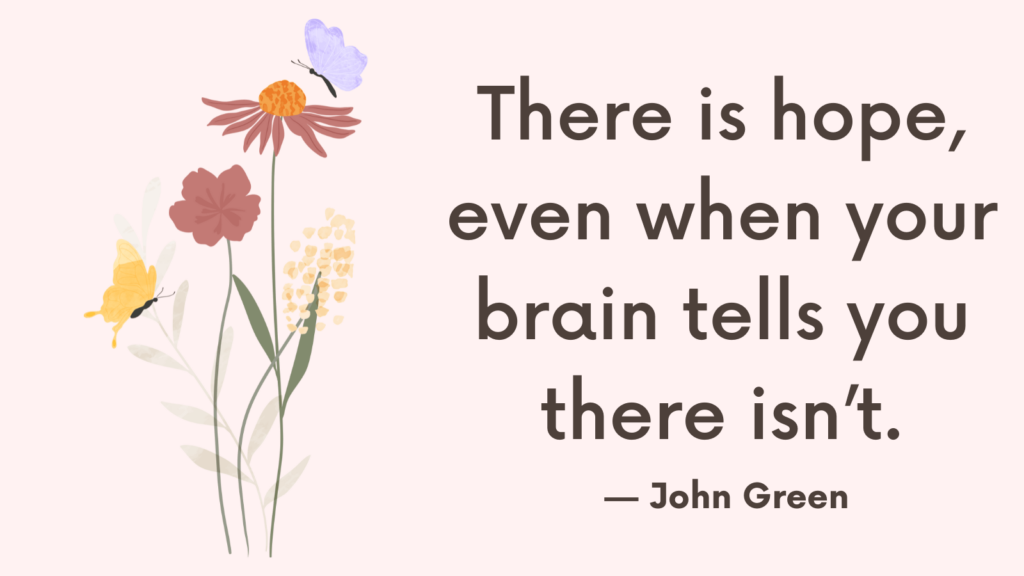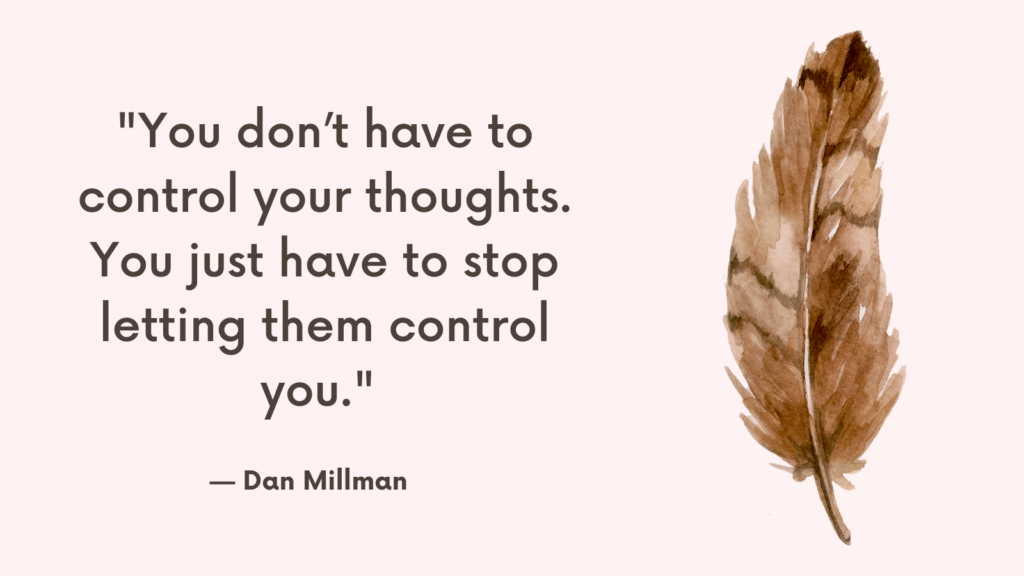Today, you’re going to discover top emotional intelligence activities to help improve low emotional intelligence.
You are probably quite a logical person.
But how emotionally intelligent are you?
Do you feel that you are in control of your emotions, or do you sometimes feel like you’re getting on the wrong side of everyone, including yourself?
What about the emotions of other people?
Are you capable of identifying and handling them?
Developing your emotional intelligence enables you to know what is going on and helps you masterfully handle your own emotions and those of other people.
- Emotional Quotient Vs. Intelligence Quotient
- Emotional Intelligence Test
- Emotional Intelligence Test PDF
- 6 Signs of Low Emotional Intelligence
- The Four R’s of Emotional Intelligence
- Top 19 Emotional Intelligence Activities
- Why Become Emotionally Intelligent?
- Are You There Yet? 4 Common Characteristics of Emotionally Intelligent people
- Conclusion
Emotional Quotient Vs. Intelligence Quotient
Intelligence quotient measures your technical skills and cognitive abilities, such as logical thinking, analytical reasoning, memorizing information, solving problems, verbal abilities, creative thinking, and other abilities.
Emotional quotient, on the other hand, determines your ability to understand and manage your and other people’s emotions in your work and personal life. Emotional intelligence includes stress management, intuition, emotional flexibility, empathy, self-awareness, assertiveness, problem-solving, and more.
Related: How to Become A Strong Empath and Turn Your Empathy Into a Super Power?
While intelligence quotient determines your success academically, emotional intelligence is vital to attain overall success in life. (1)
Your emotional quotient determines how you will deal with stress, difficult people, high pressure at work, and conflict and differences in relationships.
By gaining insights into the underlying emotional patterns of people around us, we find it easier to relate to them and build more productive relationships.
Many top organizations are making emotional intelligence tests mandatory as part of the hiring process.
In personal relationships, 90 percent of the arguments arise due to a lack of emotional intelligence.
While intelligence quotient is more inborn and hereditary, the emotional quotient can be gained and enhanced.
Emotional Intelligence Test
The following questions represent common signs of emotional intelligence:
Results
#1. Do you tend to stay calm under pressure?
#2. Do you often handle setbacks effectively?
#3. Do you often use other people’s criticism and feedback for growth?
#4. Are you often able to see things from others’ perspective?
#5. Are you often aware of how your behavior affects others?
#6. Are you usually able to listen without jumping to judgment?
#7. Do you tend to freely admit to making a mistake and reflecting on it?
#8. Are you usually able to assert yourself, including expressing your feelings and asking for what you want?
We will not sell your information. All results are kept confidential.
This quiz is for informational purposes only. It is not meant as a diagnostic or assessment tool.
Results
The questions above represent common signs of emotional intelligence. If you answered yes to most of these questions, then you may have a healthy level of emotional intelligence.
Emotional Intelligence Test PDF
6 Signs of Low Emotional Intelligence
1. You think people are being too sensitive to your jokes and are overreacting.
2. You express your point of view with absolute assertiveness, refuse to budge most of the time, and are quick to defend your stand should anyone question it.
3. You believe that as long as you do your job and deliver results, it shouldn’t matter whether people like you or not.
4. You get frustrated when others point out that you are not understanding how they feel. Your thought process is, “How am I supposed to know
or understand someone else’s feelings unless they talk to me about it?”
5. Most of the time you feel not understood by others, which makes you annoyed and upset.
6. Most of the time you find yourself blaming other people and circumstances for your shortcomings and failures.
Low emotional intelligence isn’t just limited to these signs, there are many other indicators, such as not being flexible enough or agreeable, having severe social anxiety, lack of empathy, etc.
The Four R’s of Emotional Intelligence
Emotional intelligence skills are—Recognition, Regulation, Reading signals, and Responding.
1. Recognition: Recognizing the emotions you are experiencing.
2. Regulation: Being able to control your response when experiencing those emotions.
3. Reading signals: Being able to pick up on the cues that others are giving you about how they are feeling.
4. Responding: How you interact with other people.
The First R: Recognition
For you to use your emotions effectively, you need to first recognize what emotions you’re experiencing.
It’s only when you understand what’s going on inside you that you can understand what’s going on inside someone else.
The Second R: Regulation
Most adults have learned at least a small amount of regulation skill.
For example, the person who used to stomp their feet and scream in the grocery store because they wanted candy, eventually, learned to control their response when being denied something.
Should You Always Express Your Emotions?
Sometimes it is difficult to control your emotions, especially when you are in the thrall of an overwhelming emotion.
If the emotional reaction is too strong, then you should take a pause and gain control back before you can use it or express it.
The Third R: Reading Signals
Reading signals is all about body language.
People constantly show you how they are feeling through their words, facial expressions, tone of voice, and body language.
Discerning what others are feeling requires paying attention to these signals.
The Fourth R: Responding
Responding is about effectively using all the information you’ve collected through Recognition, Regulation, and Reading Signals in order to build positive relationships and influence others.
Top 19 Emotional Intelligence Activities
Is it really possible to improve one’s emotional intelligence?
The Answer is Yes!
even if you do not consider yourself very emotionally intelligent, there is a lot you can do to boost your emotional intelligence with practice and conscious effort.
#1. Increase Awareness of Your Feelings
1. Pay Attention to Your Physical Sensations
Some of the best indicators of the emotions we’re experiencing are our physical signals. By tuning in to your physical sensations, you can develop greater awareness of your emotions.
For instance, feeling a knot in your stomach while commuting to work is a sign of high stress.
By becoming aware of your stress, you can ask yourself what makes you so stressed? Are my feelings justified?
You get a greater understanding of your situation and become more able to rationalize your thoughts and manage your feelings.
FREE List of Bodily Sensations
Practical Exercise – Mindfulness
1. Take a few moments to be still and enter the world of being rather than doing.
2. Begin this exercise by focusing on your breath and feeling into your body and mind and simply allowing any thought, emotion, or physical sensation to just be.
3. You don’t need to judge, analyze, or figure things out. Spend about three minutes simply checking in with yourself.
Apps like The Mindfulness App, Headspace, Calm, and buddhify can help introduce you to mindfulness and silent meditations.
2. Journal
Keeping a journal where you write down any overwhelming feelings or thoughts can help increase your understanding and how well you manage your emotions.
3. Tie the New Habit of Noticing Your Feelings to an Ingrained Habit
The best way to develop a new habit is to link it to an old habit that’s already a part of your life.
For example, you can tie noticing your feelings to brushing your teeth in the morning. That way, every time you brush your teeth, you automatically notice your feelings.
At first, you may need to place reminders next to your toothbrush but soon you’ll be doing it automatically.
4. Use Technology to Remind You
Set a repeating reminder to go off every hour or two. Each time, stop and pay attention to how you are feeling.
#2. Identify and Observe Your Feelings
Once you noticed your feeling, try to identify it.
This may sound easy. You either happy, sad, or mad.
But if you want to develop your emotional intelligence, you need to be specific.
If you are feeling happy, is it…
- Contentment
- Satisfaction
- Cheerfulness
- Delight
- Glee
- Joy
If you’re feeling sad, is it…
- Unhappiness
- Sorrow
- Dejection
- Regret
- Depression
- Misery
- Low spirits
- Melancholy
- Gloominess
- Heartache
- Grief
- Guilt
- Shame
- Despair
If you’re feeling mad, is it…
- Anger
- Annoyance
- Irritation
- Exasperation
- Displeasure
- Indignation
- Rage
FREE List of Emotions
#3. Identify Emotional Triggers
As you begin to notice and identify your feelings, you can also start to notice to when, where, and with whom you experience those feelings.
You may discover that a certain song makes you feel happy, or a specific person leaves you feeling irritated each time you’re around him.
Identifying these triggers can help you manage your emotions more effectively. For example, when you feel sad, you know what song will boost your mood. If you are already under pressure, you know the people you need to avoid, or interact less with.

#4. Pay Close Attention to Your Behavior
Emotional awareness is one of the cornerstones of emotional intelligence. The more you are aware of your emotions, the better you can manage them.
By paying close attention to your emotions and how they’re affecting your behavior, you increase your emotional awareness.
Start noticing how you behave in certain situations.
What sort of feelings did you experience? Were you responding consciously or just unconsciously reacting? How did your behavior affect other people? How would you feel had you been in their place?
By observing your emotions in different situations, you increase your emotional awareness and learn how to deal with these emotions more effectively.
#5. Avoid Judging Your Emotions
When you assign labels and judge your emotions, you inhibit your ability to experience them, which prevents you from using these emotions more positively.
In fact, all your emotions are valid and vital pieces of information, including the less-than-positive ones.
Every emotion is feedback closely linked with what is happening around you and how it affects you. Without this information, you’d be left clueless about how to manage your emotions in a constructive way.
Each time you notice yourself experiencing a specific emotion, ask yourself why you feel the way you do.
By paying close attention and you’ll start receiving various answers that will explain these emotions and you’ll be able to find ways to deal with them more effectively.
#6. Be Open to Receive Accurate Feedback
One of the best ways to enhance your emotional intelligence is accurate feedback.
We generally do not realize how others perceive us and tend to over evaluate ourselves in the niceness department.
It’s hard to develop a high emotional intelligence when you’re in denial mode about destructive behavior.
This is why getting healthy feedback can bring blind spots into awareness and give you an idea about what you should do to enhance your emotional intelligence.
If you can’t get feedback from your loved ones and trusted friends, emotional intelligence tests can help you find out your strengths and weaknesses.
#7. Practice Deep Breathing
Emotions can impact us physically.
Chronic, ongoing stress or anxiety can wreak havoc on the body resulting in heart disease and infectious diseases.
By learning to consciously manage our body’s reaction to overwhelming emotions such as anxiety or stress, the emotional attribute is lowered.
Start practicing deep breathing each time you feel nervous or tense. Concentrate on the flow of the breath and the abdominal cavity until you feel calmer.
Mindfulness or mindful breathing is another way to relax and create more space in your mind. By completely immersing yourself in the present non-judgmentally, you increase your ability to identify thoughts and emotions and observe them with judgment.
Doing this will reduce your chances of feeling overwhelmed with negative or destructive emotions.
Practical Exercise – Deep Breathing
1. Try doing this exercise lying down on the ground and notice how that provides a sensation of being grounded to the earth.
2. Place one hand on your stomach and the other on your heart.
3. Inhale deeply through your nose as you silently count to three.
4. Exhale through your mouth as you silently count to six.
5. Repeat this six more times, and then see if you can work up to a four-count inhale, followed by an eight-count exhale, and then a five-count inhale, followed by a ten-count exhale.
Once you’re done, notice how you feel calmer and more present.
Apps like Prana Breath, MindShift CBT, Breath Ball, and Health through Breath can help make breathing exercises easier.
#8. Use Your Emotions Constructively
Some ways you can use your emotions constructively are the following:
- Taking the sadness and writing a song or a poem about it.
- Using your energy and positive feelings to cross things off on your To-Do list.
- Using feelings of guilt about a mistake you’ve made to go apologize or make things right.
- Using your anger or stress to go for a run or do some push-ups.
- Using the feelings of unfairness to do something to help change an unjust situation.
- Taking your worry about your upcoming test and using it to study harder.
#9. Expressing Your Emotions: Be Assertive
Emotionally intelligent people realize the importance of setting healthy boundaries in order to enjoy healthier relationships.
You can say no without having to act in a disagreeable manner or coming across are a selfish person. Setting appropriate boundaries is a healthy habit that safeguards you from stress and harm.
Also, expressing yourself doesn’t mean that you’ll have to accuse other people and put them on the defensive foot. You can express your feelings and thoughts assertively without blaming the other person.
For instance, instead of saying “you shouldn’t have done this” or “you are like this”, try saying, “I felt really hurt when you said this.”
Becoming assertive means becoming emotionally honest with yourself and others.
When you face your emotions instead of denying them, it becomes easier for you to be yourself and easier for people to understand where you are coming from.
Related: How To Stop Being The Nice Guy? (5 Ways To Get What You Want In Life And Love)

#10. Change your Emotional State
Before changing your emotional state, you need to first release any negative emotions.
Write about them if these emotions are triggering negative thoughts, such as guilt, shame, sadness, or anxiety. Move your body if these emotions are energizing such as anger or stress.
Once the emotion subsided or became significantly less overwhelming, then you can move on to changing your emotional state.
Make a list of everything that you enjoy and that makes you feel good. The list may include songs, activities, places, or people that are usually available.
Changing your emotional state is not about having a Pollyanna attitude while you are dying of misery inside. It’s about releasing the negative feelings and replacing them with positive ones.
Related: 45 Easy Self Care Day Ideas at Home for a Healthy Mind, Body & Soul
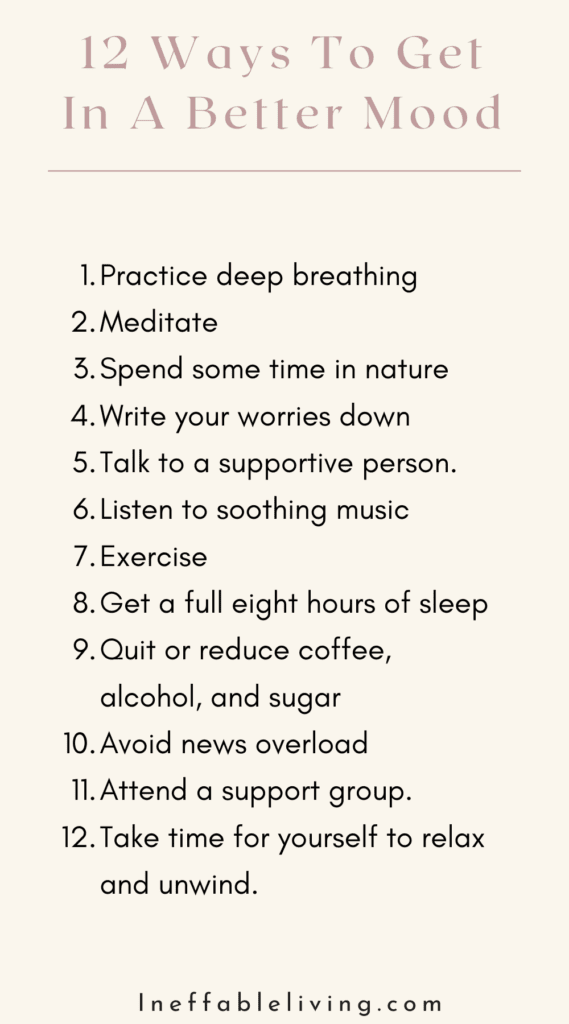
#11. Read Body Language
Research reveals that body language accounts for 50 percent of our communication.
Tuning in to the other person’s body language will help you increase your awareness of their emotions and adapt your responses and reactions.
Sometimes people say something while their body language or tone of voice conveys the opposite or a deeper truth they aren’t comfortable revealing.
For instance, a person may say something reassuring but the high tone of their voice may indicate high stress, defeating their words.
Crossed arms and legs are a sign of a subconscious barrier. People might be emotionally closed, suspicious, or do not agree with your ideas, or are simply disinterested in the topic of conversation.
You might have to change the topic for a bit to help them open up emotionally before going back to the original topic.
#12. Practice Active Listening
Most people listen not to understand but to react and respond, especially during arguments or disagreements.
While others are speaking, they are mentally constructing out their own arguments to answer back which almost always leads to even more conflict.
Active listening is an essential part of being empathetic. When you listen intently and seek to understand the other person’s point of view and feelings, you show him empathy.
Moreover, Resolving conflict can only happen when there is a mutual understanding of where each one of you is coming from and what they want.
#13. Practice Empathy
Empathy is about trying to understand other people’s feelings and points of view by putting yourself in their shoes.
Empathy is also about being able to communicate this understanding to them more effectively.
To enhance your empathy, try observing the other person and ask yourself how you would feel in a similar scenario.
Always be interested in the lives of those who are different from you through having conversations with them, or even through watching movies or reading books that will help you understand their lives better.
When you put yourself in the other person’s shoes, you become more empathic and reduce reactivity. You start thinking more objectively by understanding where the other person is coming from and conflict resolution becomes much simpler.
For instance, if your manager is being demanding, think about the pressure of performance expectation he is dealing with at the hands of senior management.
Related: How to Become More Empathetic? The 6 Habits of Highly Empathetic People
#14. Decrease Negative Personalization
When you feel negatively impacted by someone’s behavior, refrain from rushing to a conclusion, and ascribing a negative reason for their behavior.
Give them the benefit of the doubt and try to gather a more holistic perspective of the circumstances before judging.
For example, if a friend didn’t return your call or message, instead of assuming that he or she wants to avoid you, think of other more positive possibilities. They might be busy, or ill, or in a dire situation.
Consciously try to avoiding avoid ascribing negative reasons for people’s behavior and start viewing them more objectively.
Related: 6 Powerful Techniques To Overcome Negative Thinking
#15. Develop Flexibility
Emotionally intelligent people know when to adapt, shift perceptions, and keep pace with newer circumstances. They adapt and manage their emotions and behaviors according to the situation.
Be open to change and start seeing challenging opportunities and newer experiences.
Emotionally intelligent people pick their battles very wisely. They understand that peace is often more valuable than being right.
This isn’t to say that you should let people walk all over you. Assertiveness and healthy boundaries coexist with flexibility and adapting to the situation.
Emotionally intelligent people have enough perspective to recognize what is worth fighting for and what is worth giving up.
#16. Respond Rather Than React
Reacting is an unconscious and uncontrolled process that is a result of an emotional trigger.
For example, when you are already stressed or annoyed, you might find yourself snapping at your partner over the seemingly small stuff.
Responding, on the other hand, is a more conscious and controlled process where you choose how you behave in a given situation.
So instead of snapping at your partner, you simply explain that you are not feeling too good and that this isn’t the best time to have a conversation, and that later you’d be calmer and in a much better position to give her your undivided attention.
By taking control of your emotions, you deal with the situation in a more productive and less impulsive manner.
Next time you’re tempted to react, evaluate how your actions will impact others, and try to place yourself in their shoes. Would you like to go through the experience yourself? What a better response would be?
#17. Use Your Mental Pause Button
When you find yourself on the verge of reacting, take a moment to breathe deeply and think before you respond.
When you find yourself tempted to type an elaborate mail or text in rage, pause for a moment and ask yourself “Will this help to resolve the issue, or will make it worse?”
By consciously working on pausing before reacting, you get into the habit of consciously choosing how to respond in a certain situation.
This will make you feel more in control of your emotions.
#18. Accept Responsibility for Your Feelings and Actions
This can be one of the most challenging ways to boost your emotional intelligence.
People around you may be partly responsible for creating certain situations, but you are the one in charge of your own reaction to these situations. Because your emotions and behavior originate from you, you are completely responsible for them.
No one makes you do or feel anything without your consent.
While your feelings offer you feedback about your experience with different people, these feelings remain your responsibility.
For instance, if you hurt someone, be gracious enough to accept it and apologize instead of ignoring the person or finding something to blame them for.
One way to start taking responsibility for your own feelings is to stop complaining. Shed the victim syndrome search for matured ways to deal with your circumstances and relationships.
Related: How To Reclaim Your Life? (5 Steps to Take Back Your Power And Start Loving Your Life)
#19. Keep a Positive, Solution-Oriented Attitude
Emotional intelligence originates from being happy and vice versa.
Emotionally intelligent people aren’t just happy because good things are happening to them. In fact, they encounter challenges like everyone else.
But they know how to manage and take control of their emotions, including their happiness.
They wake up joyfully every morning, knowing that happiness comes from within and starts with a positive, solution-oriented attitude. They don’t let their challenges dampen their zest for positivity.
By keeping a positive, solution-oriented attitude and avoiding getting caught in destructive self-pity, you start taking charge of your own happiness.
Why Become Emotionally Intelligent?
Emotionally intelligent people enjoy an array of benefits in all areas of their lives, including relationships, career, and social life.
Here are some ways in which your life can be benefited if you consciously work on developing high emotional intelligence:
1. Greater Compassion in Personal and Work Life
Compassion can be manifested in many ways, such as helping someone by taking on their responsibilities.
This compassion allows you to connect with people at much deeper levels and enjoy meaningful relationships, which creates an atmosphere of harmony and productivity both in your personal and professional life.
2. Improved Communication Skills
People with a high emotional intelligence express themselves more efficiently and possess the ability to listen attentively to other people’s verbal clues and non-verbal communication, such as body language and tone of voice.
This allows them to make people feel at ease by using the right words and non-verbal signals. They leave little scope for misunderstanding whilst communicating with other people.
Related: How To Communicate More Effectively
3. Lower Chances of Addiction and Other Emotional Disorders
Addictions are usually a direct result of our inability to come to terms with emotions. (2)
People who struggle to cope with their emotions use addictions as a mechanism to avoid dealing with their underlying and prevailing issues.
Emotionally intelligent people are less prone to addiction because of their awareness of their emotions and the ability to manage them.
They adapt more easily to challenges and are competent in resolving differences and coming up with more positive solutions.
Related: How to Break Your Bad Habits Using Cognitive Behavioral Therapy (CBT)?
4. Coping With Life Challenges
Emotionally intelligent people have the ability to calm their minds and bodies, which helps them view things from a clearer and more objective perspective.
Greater calmness, objectivity, and clarity help them become more resilient where life’s challenges are concerned.
Related: Finding Peace Within Yourself: 101 Timeless Principles to Live In Peace and Relieve Stress
5. High Productivity
Emotional intelligence is shown to increase an individual’s work performance.
In fact, several studies have revealed that emotional intelligence is twice as crucial as technical/cognitive abilities, leads to betting decision-making (3), and can protect you from burnout. (4)
Are You There Yet? 4 Common Characteristics of Emotionally Intelligent people
1. They Have a Great Overall Balance
An emotionally intelligent person knows how to find a balance in key areas of their life.
When they realize that work or relationships are getting them worked up, they know how to step back, take a break, and recharge.
2. They Have Laser Focus
Emotionally intelligent people don’t let their emotions control them or distract them.
They are able to control their emotions or regulate them to a certain extent and stay focused on whatever they’re doing.
3. They Are Empathetic and Open-Minded
Emotionally intelligent people have a great understanding of their emotions and others’ emotions.
This allows them to connect more deeply with other people and better able to understand other people’s perspectives.
4. They Move Forward Easily
Emotionally intelligent people are able to face and learn from their mistakes, and move forward easily.
They are very slow to anger and frustrations, but faster to forgive themselves and other people. They will not dwell on past hurts and arguments because they have a deep understanding of themselves and others.

Conclusion
Emotional Intelligence is developed through being aware of your emotions and learning how to handle them.
It’s also developed through increasing your awareness of other people’s feelings and points of view.
There is a very good reason to want to do this.
Being able to manage your emotions and read those of other people will help you build productive relationships and enjoy a more peaceful life.
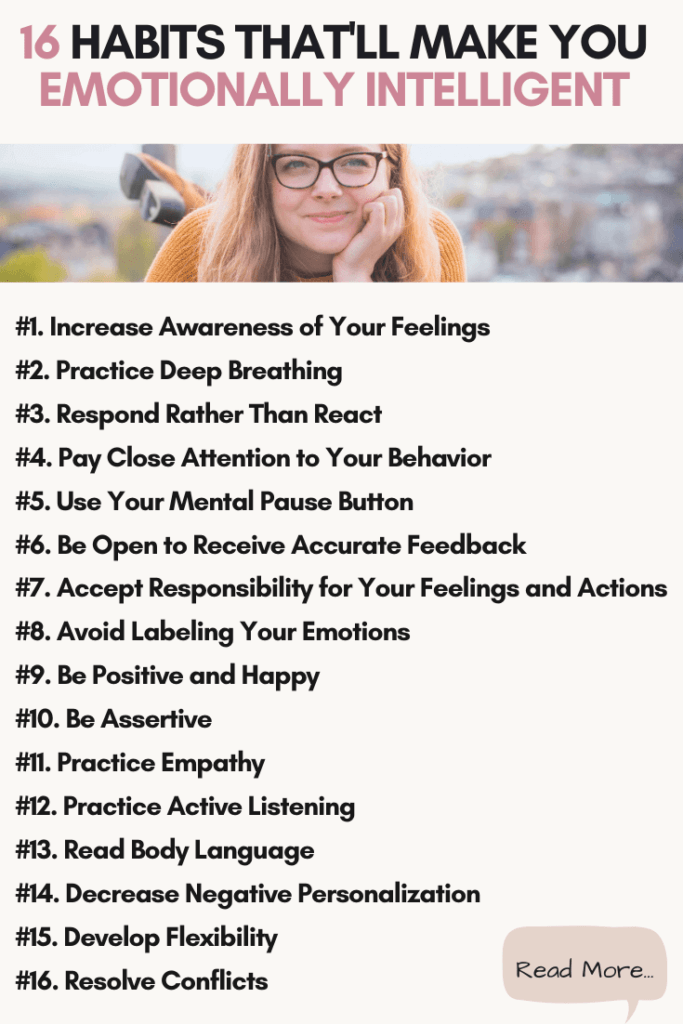
References
- Portions of this article were adapted from the book Emotional Intelligence And How To Achieve Mastery, © 2018 by Jacob Greene. All rights reserved.
- Portions of this article were adapted from the book Emotional Intelligence: Why Emotions Are Great Tools But Bad Bosses, © 2020 by Diane Weston. All rights reserved.
- Emotion Theory and Research: Highlights, Unanswered Questions, and Emerging Issues – PMC (nih.gov)
- Frontiers | The Influences of Emotion on Learning and Memory | Psychology (frontiersin.org)
- The Science of Emotion: Exploring the Basics of Emotional Psychology | UWA Online
- Scientists Who Study Emotion | Nature of Emotions | Paul Ekman Group
- Putting Feelings Into Words Produces Therapeutic Effects In The Brain — ScienceDaily
- Examining how people’s emotions are influenced by others | Stanford News
